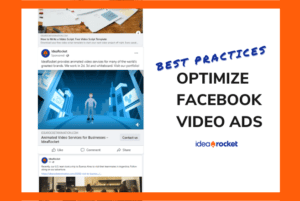Success is impossible if you don’t know what you’re trying to achieve. That’s not just because you won’t know whether you’ve won, but because your actions won’t be fully intentional. (You have to know where the goal is before you can score it!) If your organization is considering a video project, your first step should be to define your video objective. Here are some guidelines for doing that.
Drill Down to Your Bottom Line with ‘Why?’s
Before narrowing in on your video’s objective, it is useful to think about how this objective fits in your company’s broader goals.
It’s not enough to say “Our goal is to let users know what our app does.” Why do you want to let people know what your app does?
“Because then they’ll understand that it is better than the competition’s.” Why do you want them to know that?
“Because then they will choose our app over the others.” Why is that good?
“Because then we’ll drive more downloads.” Why do you want more downloads?
“Because then we’ll get more revenue.” Why do you want more revenue?
“Because then we’ll make more profit.” Ah! We’re at the bottom line now.
Your bottom line might not be a literal bottom line. Maybe you have a non-profit that wants to encourage breast cancer screening in order to save lives. If that is your mission, then that is your bottom line.
You don’t need all this information in your objective statement, but you need the important connective tissue. So you statement won’t be: “Let users know what our app does.” Instead it will be: “Let users know what our app does that makes it better than the competition, so that they download it and start using it.”
When you are communicating with your internal or external video-making team, make sure they understand this full context of your objective. You will be surprised at how it can add nuance to their choices, and yours. In the example above, for instance, a video-maker might get lost in explaining the app without also keeping in mind the importance of differentiation and the call-to-action at the end (“Download it Now!”)
Make It Measurable
There are two kinds of objectives for videos:
- Action-based: downloads, sales, leads generated, etc.
- Knowledge-based: brand awareness, functional know-how, topical familiarity, etc.
If the action you are seeking is on the internet, talk to your developers about how the action can be traced and reported. The tools available are powerful.
If the action is in the real world, see how you can trace that action back to the video. For example, if you’re trying to drive people to call a phone number, you might use a forwarding number exclusively for the video, so you can measure the number of calls you get from it. Or you might use different discount codes for different marketing channels, so you can come to conclusions on your video’s relative contribution to your goals.
When your objective is knowledge-based, measuring it is more challenging but still possible.
- If you are using it in a training program, consider quizzes.
- If you are measuring awareness, consider tracking Google searches, or using surveys.
- If you are measuring functional familiarity (with an app, for instance) see how many help requests you get, or how many users abandon the app soon after download.
Create A Reasonable Target
What is a reasonable target? That is going to depend on the history of what you’ve tried before, both in terms of video or other assets. Also, it will depend on where you are starting. Are you in a fairly optimized situation now? Then make your target more modest. On the other hand, if you are adding a video to a landing page that is a complete wreck, it might be reasonable to be a bit more aggressive in your goals relative to the place where you are now.
Do you have an event or roll-out that you need your video for? You should target that too. Even if there is no reason for urgency, it’s smart to put some time parameters on the project so that it doesn’t stretch out and burden your other goals.
By now you should have the following:
- A video objective that is specific
- Connected to broader goals
- Measured by a metric
- With time and performance targets
Having a well-defined objective will set you up for success!
This post forms a chapter from my ebook, Succeeding With Animated Video. To read the rest of my advice on how to manage an animated video production for your organization, sign up for our newsletter below and you will receive the ebook for free.




